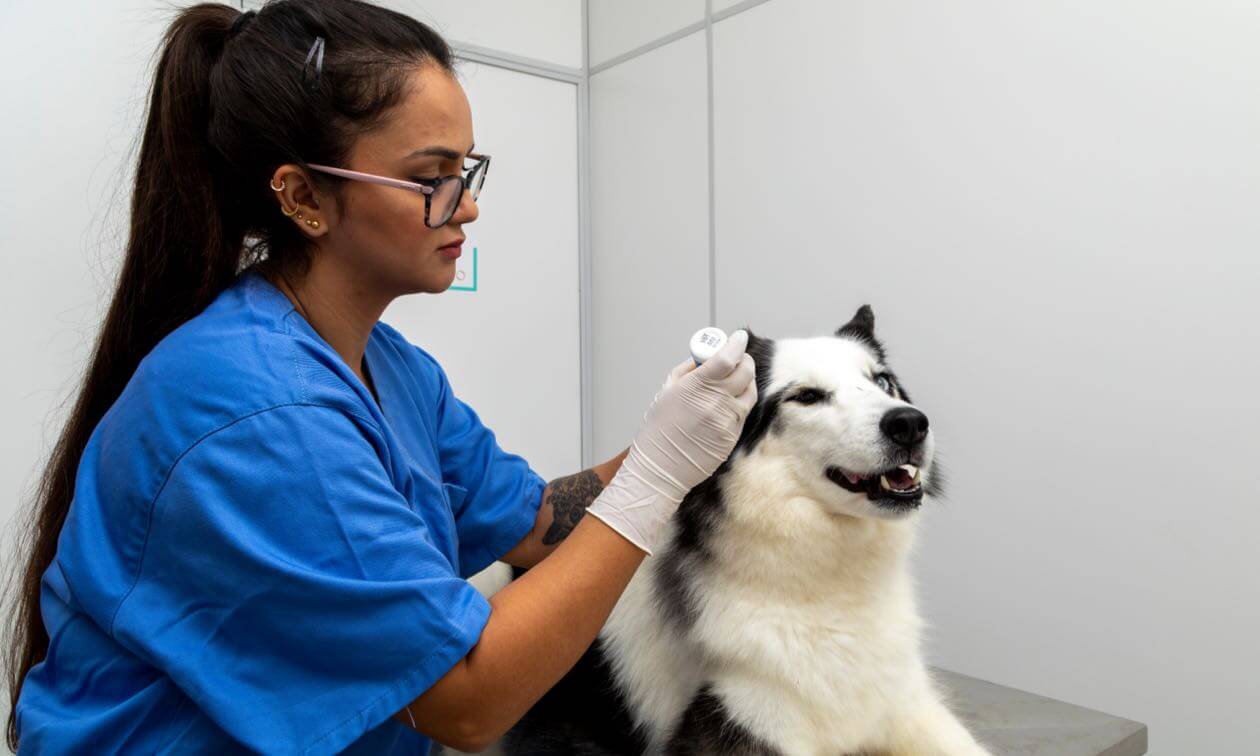Keep Your Pet Safe with Routine Pet Vaccinations from a Trusted Veterinarian
Keep Your Pet Safe with Routine Pet Vaccinations from a Trusted Veterinarian
Blog Article
Inoculation Guidelines From Your Relied On Veterinarian
Vaccination standards provided by your trusted veterinarian play a crucial function in safeguarding your animal's health and wellness and wellness. Core vaccinations are fundamental for all animals, while non-core injections can be tailored to environmental exposures and certain way of livings. Understanding the nuances of inoculation schedules, which start as early as 6 to 8 weeks, is necessary for ideal protection. In addition, addressing usual false impressions surrounding injections can even more improve family pet owners' self-confidence in these safety nets. As we check out these critical elements, it ends up being significantly clear why normal examinations with your veterinarian are crucial for informed decision-making.

Value of Vaccinations
Vaccinations play a critical function in safeguarding animals versus a range of preventable conditions. By stimulating the immune system to acknowledge and fight details virus, vaccines dramatically lower the incidence of transmittable conditions that can impact a pet's health and wellness and durability. Not only do vaccinations protect specific pets, but they also add to herd resistance, consequently decreasing the total prevalence of illness in the pet dog populace.
Timely vaccinations help to mitigate the spread of conditions such as rabies, parvovirus, and distemper, which can have extreme effects for both human beings and pet dogs. Additionally, inoculations are frequently a requirement for boarding facilities, brushing solutions, and canine parks, making them necessary for those that wish to mingle their pet dogs.
Core Vaccinations for Pets
While the details vaccination needs of pet dogs can differ based on specific variables, core vaccines are universally recommended to shield versus the most typical and severe conditions (Pet Vaccinations). Core vaccinations are those considered vital for all pets, despite their lifestyle or geographic location, as they secure against highly transmittable and potentially fatal health problems
For pets, the core vaccinations include those for canine distemper, parvovirus, adenovirus (liver disease), and rabies. Adenovirus can result in liver disease, while rabies is a zoonotic disease that positions a risk to both humans and family pets.
In cats, core vaccines incorporate feline panleukopenia, feline calicivirus, feline herpesvirus (rhinotracheitis), and rabies. Feline panleukopenia is a very infectious viral illness that influences the immune system and intestines. Calicivirus and herpesvirus are major factors to upper respiratory system infections in cats, while rabies remains an essential worry for public health and wellness.
Seek advice from with your vet to guarantee your animals receive their core inoculations on timetable.
Non-Core Vaccines Explained
Non-core vaccines are customized to resolve particular dangers associated with a pet's setting, way of life, and exposure to specific illness. Unlike core injections, which are widely recommended for all animals, non-core vaccines are thought about based upon individual situations. These injections are especially vital for animals that might encounter distinct pathogens due to their geographical place, travel habits, or tasks.
Instances of non-core vaccinations include those for Bordetella bronchiseptica, which is linked to kennel cough, and Lyme illness, triggered by ticks. Pets that frequently engage with various other pets, such as those in boarding centers, dog parks, or brushing settings, may benefit from Bordetella inoculation. Similarly, if you stay in an area where Lyme illness is prevalent, immunizing versus this condition can be a sensible choice for outdoor-loving dogs.
Other non-core injections might include those for leptospirosis, canine flu, and feline leukemia, relying on the specific danger variables present. It is crucial to have a comprehensive conversation with your veterinarian about your pet's way of life and the potential demand for these injections, guaranteeing a tailored inoculation technique that finest secures your fuzzy close friend.
Vaccination Set Up Introduction

As family pets develop, it is crucial to comply with the advised booster inoculations. Pet Health Checkup. For adult pets, core injections are normally given every one to three years, depending upon the details vaccine and neighborhood guidelines. Non-core vaccines might be recommended based upon lifestyle variables and click regional illness occurrence, try these out demanding a tailored approach
Normal vet check-ups are critical for upgrading vaccination routines. Your veterinarian can provide guidance on one of the most suitable booster shots for your pet, considering age, health standing, and ecological risks. By staying aggressive and informed, animal proprietors can guarantee their fuzzy buddies receive efficient and timely vaccinations, thereby safeguarding their health and wellness and well-being throughout their lives.
Usual Myths Regarding Vaccinations
Mistaken beliefs about pet dog vaccinations can lead to complication and unwillingness among pet proprietors pertaining to the booster shot process. One prevalent misconception is that injections are unnecessary for indoor pet dogs. While it's real that interior family pets deal with lower risks, they are not entirely unsusceptible to conditions, as virus can be introduced through various means, consisting of human garments and various other family pets.
Another misunderstanding is that vaccines can create the diseases they intend to avoid. In reality, the majority of injections include suspended or attenuated virus, which can not trigger condition in healthy and balanced animals. Some pet dog proprietors also think that their family pets ought to not be immunized if they are already healthy and balanced; nevertheless, vaccinations are an aggressive procedure that helps protect against the beginning of disease.
In addition, numerous pet dog owners fear that vaccinations will certainly result in long-lasting health and wellness complications. While adverse effects can take place, they are normally mild and short-term. The advantages of inoculation-- safeguarding pets from potentially serious diseases-- far exceed the dangers. Recognizing these common myths is vital for liable pet ownership and making certain the health and security of your hairy companions. Always consult your vet for exact information tailored to your animal's details requirements.
Conclusion
In recap, adherence to inoculation guidelines is essential for guaranteeing the health and wellness and longevity of animals. Dispelling common misconceptions surrounding vaccinations further reinforces the significance of informed decision-making in pet dog care.
Not just do vaccinations secure individual animals, yet they likewise add to herd immunity, therefore decreasing the total prevalence of illness in the animal populace.
False impressions regarding pet dog vaccinations can lead to confusion and hesitation among family pet proprietors concerning the booster shot process. While it's true that interior animals encounter lower dangers, they are not entirely immune to that site diseases, as microorganisms can be presented through different means, including human garments and various other pets.
Some animal owners likewise think that their family pets ought to not be vaccinated if they are already healthy and balanced; nonetheless, vaccinations are a proactive procedure that assists protect against the onset of disease.
The benefits of vaccination-- securing family pets from possibly life-threatening diseases-- far outweigh the risks.
Report this page